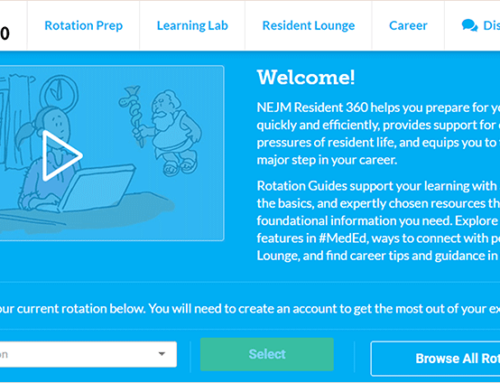Earlier this week, the American Board of Internal Medicine (ABIM) issued a written response to all internal medicine physicians, addressing concerns about recent changes to Maintenance of Certification (MOC) requirements. ABIM acknowledged “a palpable level of anger among internists and internal medicine subspecialists” as well as a “sense of siege and stress” and noted that “the internal medicine community has collectively raised a number of valid questions and appropriate concerns about the revised MOC program.” In the coming year or so, ABIM plans to alter some of it’s policies and processes, as well as its requirements. MOC Part 4 is undergoing the most changes; Part 2 is not going away but is being examined.
ABIM leaders received a letter dated May 7, 2014 sent by the American College of Physicians (ACP) on behalf of 14 medical societies and subsequently met with the leaders of many internal medicine societies and their officers to discuss concerns about Maintenance of Certification requirements in greater detail. ABIM also convened a meeting on July 15 at which representatives from 26 medical societies gathered to share their thoughts regarding MOC.
Concerns about Maintenance of Certification requirements include:
- the timing of the changes to MOC requirements
- the redundancy of various requirements (both internal and external to ABIM)
- the exam format and reporting
- the complexity of the MOC process
- the slowness of the approval processes for self-assessment products created by medical societies and others
- the difficulty of small practices and others to conduct patient surveys for Part 4
The feedback from the medical societies also called for:
- fiscal transparency, and a recommendation to change the fee structure
- evidence of efficacy of MOC program methods to improve the practice of medicine
- tighter oversight of ABIM’s products by physicians
- opportunities for input and comment via either a formal comment process or the LCCR (Liaison Committee on Certification and Recertification)
- ABIM to stop producing self-assessment products
- reliable information and input from medical societies on the impact of MOC on the workforce
ABIM’s open letter acknowledges that societies’ concerns about Maintenance of Certification requirements are valid and understandable. They promise improvements to the ABIM website along with more substantive changes to alleviate the burden of MOC and to include physicians in conversations about it. Here is a summary of their responses from their open letter to physicians, which included some of the changes they are making or considering making to MOC as a result.
Bad Timing of the Changes to MOC
Though ABIM cannot go back and change its regrettable timing of the rollout of the changed MOC requirements, it recognized in its open letter that the timing of the changes to MOC were “hardly propitious” given the dramatic changes to practice physicians have been making because of the Affordable Care Act; the Meaningful Use requirements; an increasing emphasis on the role of systems, teams, and technology that can be felt as a devaluation of the role of individual doctors; aggressive institutional compliance policies; and the “information-leveling” effect of the internet, dramatically changing the conversation between physician and patient.
In addition to praising the physician community for its “commitment to lifelong learning and continued performance improvement,” ABIM expresses hope that “If we can chart a path together that helps colleagues, members, and diplomates achieve that, we will have fulfilled our responsibilities as leaders at a very challenging time.”
Complex and Redundant Requirements
One of the unforeseen consequences of the reciprocal nature of ABIM’s programs and policies was that physicians became angered and confused over what appeared to be redundant requirements:
[S]ome of our colleagues have conflated various ABIM programs and processes with some of those demanded by government, payers, hospitals or health systems. Indeed, in our ongoing commitment to “reduce redundancy” and decrease the reporting burden on physicians, we linked our credential to many of these other efforts. That has clearly been a double-edged sword, engendering confusion instead of good will.
ABIM seeks to clarify some of the requirements that have caused the most outcry and confusion:
ABIM does NOT support using MOC as a requirement for any maintenance of licensure program. On the other hand, we DO believe that any physician who chooses to engage in MOC should be exempted from any additional MOL requirements.
In states where licensure includes required CME, MOC should count for those and any other knowledge or QI requirements.
In addition, ABIM is committing to product standards that will be “aligned with AMA PRA Category 1 credit standards for enduring materials, journal-based CME, test item writing and
Internet point of care learning.”
Exam Format, Content, Pass Rates, and Reporting
The secure exam will remain in place, ABIM confirmed in its letter, and will continue to “evolve with time as indeed it has” since 1936 “when ABIM was created by the medical community … as a standard setting organization.”
Whatever changes we make to the exam in the future related to content, format, delivery vehicle, feedback, etc. will need to support the use of the exam as a summative assessment tool that signifies competence in the disciplines of internal medicine. The community has requested a more modular, practice-relevant approach to summative assessment and we are convening a committee to explore how to move those ideas forward.
ABIM suggests that this committee will discuss the “development of the examination, including generation of the exam blueprint and its level of granularity.”
Furthermore, ABIM acknowledges the confusion over pass rates and reports that initial exam takers’ pass rates have been declining over the past 5 years, but ultimate pass rates have remained fairly constant at 95% to 98%. ABIM is preparing to display on their website first-time taker and ultimate pass rates by specialty, and would welcome suggestions about how they can more clearly communicate these distinctions.
ABIM will also be releasing more detailed blueprints this year and will be giving more detailed performance feedback on the score reports in 2015, including a high-level description of the questions that were missed. They showed these new score reports to groups of internists, and found that these groups responded very favorably to them and made some improvement suggestions.
In response to the societies’ concerns about fallout from the high-stakes exam, ABIM committed to a change to reporting in which
Any diplomate who takes an exam before his/her examination is due and fails will get an additional year to pass before being reported as “Not Certified” or “Not Meeting MOC Requirements”(assuming all other MOC requirements are met).
Approval Process for Self-Assessment Products
ABIM has committed to streamlining the process for recognizing products produced by specialty societies and other organizations for medical knowledge (Part 2) credit.
They will reveal detailed program policies and requirements in mid-September, when they will begin accepting registrations and products “from organizations with a proven track record of producing quality self-assessment products.”
Later in 2014, ABIM will launch a full-scale revision of the medical knowledge approval program.
Another aspect of this issue is the thorny question from the societies: Should ABIM produce any MOC products? The answer from ABIM is that ABIM will continue to “produce and offer medical knowledge modules and practice assessment options.”
We believe that our medical knowledge (Part 2) modules add value in this arena, in that these products are consistently among our most popular among our diplomates, especially when delivered as learning sessions at society and society chapter meetings.
Part 4 and Patient Surveys
The Part 4 requirement (also known as “Self-Evaluation of Practice Performance”) sparked some of the strongest negative feedback toward ABIM MOC, so it has been the focus of some of ABIM’s “most intense reflection in the past year.” ABIM promises that Part 4 “will change most dramatically in the next 12-24 months.”
The name that ABIM has been using for one part of this requirement — “patient survey” — has caused confusion and objection. The intent of this requirement is ensuring that “physicians have incorporated the patient voice in their work.”
While surveys are one option to meet this requirement, there will be others and they will not require physicians to share any data survey information with ABIM. We are changing the name of this
requirement to “Patient Voice,” and there will be at least 4 different pathways to meet it before 2018, the deadline for completing the requirement.Our new specialty boards will begin to tackle the question of what are the appropriate patient voice options in each specialty and practice types. As part of their responsibilities, the boards are charged with liaison with the medical societies in their clinical domains.
(The other major aspect of Part 4 is “patient safety” and has not been controversial.)
In addition, there are many physicians who are clinically inactive but who would like to remain board certified and be reported as “meeting MOC requirements” on ABIM’s website. ABIM has convened a committee to work on this issue and welcomes input about modifying or eliminating Part 4 requirements for such physicians. Another topic for discussion is whether or not physicians can or should self-report publicly as “clinically inactive.”
Fiscal Transparency and Fees
ABIM recently posted an interactive pie chart of how fees are used. They also pointed out, in replying to the ACP’s call for transparency, that along with all other nonprofits, “our 990s are publicly available on guidestar.com.”
For fiscal 2013, the biggest expenses for ABIM were
- exam delivery and scoring ($12.8 million)
- finance, legal, and building-related administration ($8 million)
- physician communications, call center, academic affairs, and web ($8 million)
- question writing for certification and MOC exams in 20 specialties ($7.5 million)
- self-assessment products and approvals ($5.9 million)
ABIM is changing its fee structure in 2015. The current cost of enrollment is $1,940 (per 10 year cycle). One sure shift is that for the certification exam, the first retake fee is being reduced from $775 to $400.
In addition, ABIM will explore pricing options “whereby diplomates, over their 10-year exam cycle, can opt in or opt out of access to ABIM products and, if they opt out, get a discount on
their MOC fee.”
Evidence of Efficacy of MOC
For some time, ABIM was under the impression that physicians were more interested in the details of completing MOC than in the reasons for it or the evidence behind it; however, ABIM’s recent focus groups have convinced its leaders to unsheath the research that “both informs certification and MOC and examines its impact on internists and our patients.”
Although ABIM has been criticized for promoting internal research supporting its own policies, it notes that “ABMS and ABIM have extensive research libraries on their websites” and “More than half of the studies included are from non-ABIM researchers.” They would like to make such research more accessible to physicians and welcome input on how to do that.
They also would welcome “partnering on research projects and a broader discussion of potential research agenda.”
We have a structured and rigorous process for reviewing all research with respect to alignment with strategic goals and research design quality for both internal and external projects. We currently collaborate on many research projects with research partners, including individuals at Yale, Dartmouth, Mathematica, Archimedes, and Duke. As we presented at the last LCCR meeting, we have also partnered with several societies for correlational studies on the In-Training Exams (e.g., IDSA, ASCO, ASH, etc.).
Oversight of ABIM and the Role of Physicians
A demand for tighter oversight of ABIM’s products and the inclusion of outside physicians in determining aspects of MOC was not taken lightly by the ABIM leaders who wrote this open letter to the physician community. They write that “While we have confidence in our existing processes in this area, we commit to reevaluating our approach as ongoing quality improvement.”
ABIM routinely surveys physicians who use their products and reports that
Physicians who complete our products rate them highly both on content and value, though not universally: 6% of users of ABIM medical knowledge modules (N= 50,637) Disagree or Strongly Disagree with the statement “This module was relevant to my practice”; 5% of ABIM module users (N= 52,247) Disagree or Strongly disagree with the statement “This module was a valuable learning experience.”
In the letter, ABIM reminds us that they invite comment on modules and exam questions and that “ABIM staff and physician Self-Evaluation Process committees review all diplomate comments monthly and remove outdated or controversial questions from scoring until they can be replaced in our next scheduled version change.”
A more difficult task is changing the makeup of the ABIM leadership team, but ABIM is taking steps to start that process:
We agree that having practicing internists represented in our ABIM team is vitally important, and as such are in the process of substantially enhancing our physician staff capacity at ABIM, actively recruiting for a Senior Vice President of Doctoring and expecting to have a Medical Affairs department that consists of six FTE physicians, in addition to the CEO; the highest it has been in the past was three.
The Impact of MOC on the Workforce
Rumors abound that some physicians may be signalling distress and opt out (i.e. retire) rather than complete MOC requirements. Anecdotal evidence is one thing, but reliable research is another, and ABIM has been asked “to consider working with the professional societies to collect reliable information on the impact of MOC on the workforce that will inform MOC policy and programs.”
ABIM reacts to this request with skepticism, saying that “in the past we have believed that using workforce as an influence on our standards is a conflict of interest.”
Their statement concludes with this:
We also believe that any putative linkage between MOC and workforce trends is likely to overlook much more potent factors which influence workforce, such as the payment system, the systems of academic promotion, institutional status, etc.
Many factors affect the practice of medicine today, and surely this is an ongoing conversation.
We welcome your comments below.
Further reading:
ABIM MOC Petition Reveals Escalating Debate Among Physicians – Learning+ blog
ABIM Maintenance of Certification Requirements – NEJM Knowledge+ website
American Board of Internal Medicine website









concerns that exams and modules are not a true test of how well we take care of patients